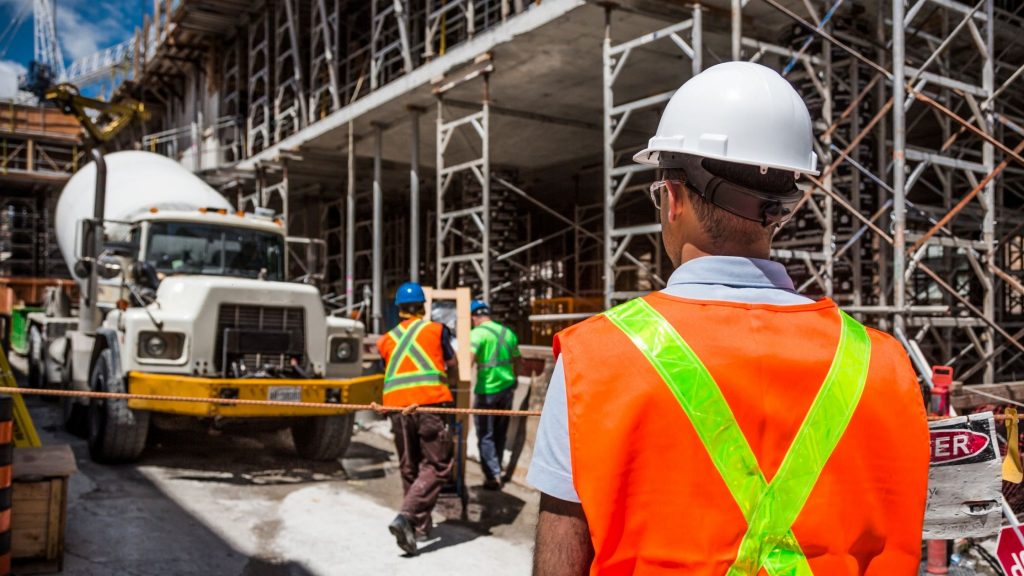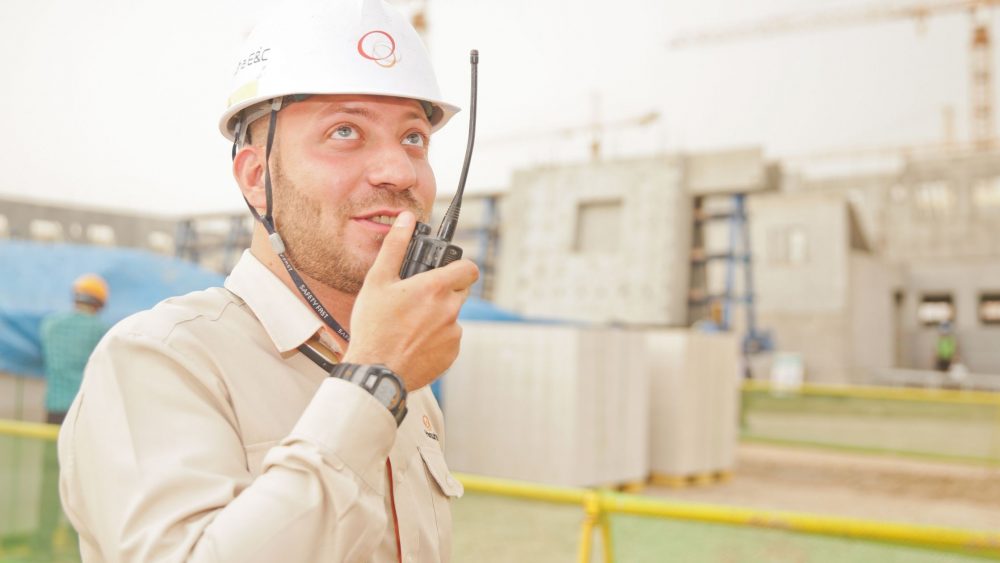Who is the first person construction team members go to when they have a problem? Right. The Project Manager.
But handling the team’s questions and concerns is only a small part of a construction Project Manager’s duties.
Broadly speaking, a PM takes the construction project from A to Z.
You work both on-site and in the office. You meet and fight new challenges, day in and day out. You are expected to listen to those you work with, understand the emergency, and then get the job done. It is your duty to make sure everyone’s ideas are heard and expectations are met.
Construction Project Manager’s main duties include planning, cost, schedule, scope of work, safety and quality management.
These categories embrace all of the major stages in the construction process: site selection, design, bids and permitting, construction, and delivery.

1. Creating benchmarks.
Benchmarking is key to understanding if everything is in line with plans, specs, and blueprints.
Benchmarks are a sort of checkpoint to estimate the overall effectiveness of the construction process, identify pitfalls, and design viable strategies.
If you are good at benchmarking, it will help to set realistic timelines and attainable goals so that you can deliver projects on time and under budget.
2. Understanding the “big picture”.
You should have a clear understanding of the project ultimate goals and be able to communicate your vision to your team. This will help every team member to act proactively, stay goal-oriented, and work with minimum supervision.
3. Continuous planning and revisions.
Any experienced project manager will confirm that planning starts long before construction begins. You will spend a lot of time revising and adjusting milestones to address unexpected issues and make sure the project plan aligns with the overall objective and timeline.
4. Performing risk management.
Construction site conditions, environmental concerns, worker safety, design alterations, financial fluctuations… There are so many factors that can pose a risk to your project.
Managing these risks is another important aspect a Project Manager should deal with.
Identifying and assessing risks top the priority list. Then you should categorize them based on their potential impact on the overall project and the probability of their occurrence.
Roles should be clearly defined so that each of your teammates knows the scope of their duties when it’s time to address the risk.
5. Ensuring workers’ and the building’s safety.
Successful completion of a construction project is not only about time and cost-effectiveness. Every single aspect of the accomplished work should comply with building codes, plans, and specifications.
Besides, deep knowledge of workplace health and safety regulations is an absolute must. Unfortunately, worker safety remains one of the most important issues in the construction industry, and the PM has a primary role of making the construction site safe for every single worker and visitor.
6. Putting together the budget.
You are the keeper of the budget, so staying within the predetermined boundaries is essential.
Budgets for wages, equipment, and materials — everything should be thoroughly considered.
Remember, it’s important to keep the clients updated for any budget-related issues as soon as they pop up. This will help you take the stress out of the process and tackle issues effectively before matters get too complicated.
7. Obtaining and distributing resources.
From nails to bulldozers, the construction Project Manager must obtain all of the materials, equipment, and supplies necessary for the construction.
Tracking inventory effectively is also important. You don’t want unnecessary stuff to pile up on the construction site. On the other hand, you don’t want to lose time on obtaining necessary supplies when the construction is in full progress. Finding the balance is tough, but that’s what makes a PM stand out.
Also, be prepared to review and update any changes in the project and allocate resources accordingly. Flexibility and strategic thinking are important to be able to make the right decisions.
8. Hiring, firing, and managing staff.
Do you have competent and motivated staff on board? You are halfway through. Most likely, your project is going to be a success!
As a Project Manager, you are required to hire the best talent and help them succeed in their roles. Construction is a high-risk industry, so taking care of employee’s well-being is one of your top tasks, otherwise “health, safety, and productivity can be negatively impacted.”
The team spirit is of no less importance. A strong corporate culture where people enjoy a positive atmosphere and integrity is a hint that a professional manager is there leading the team. Employees should get a clear direction from their manager and should know their hard work is recognized and rewarded.
Each of the above-mentioned duties will be impossible to accomplish without a number of essential skills.

Required skills for a construction project manager:
1. Time management skills.
2. Communication and interpersonal skills.
3. Ability to work under pressure.
4. Being tech-savvy.
Tools are great but every decent career starts with a well-designed, comprehensive training.
No matter your background or work experience, the first step to becoming a construction project manager can be enrolling in a course that will enable you to become a licensed builder. The training CPC40110 Certificate IV in Building and Construction is the right one to help you get the qualification. Enrolling and completing the CPC40110 Certificate IV in Building and Construction is required in order to apply for a Low Rise Builders Licence.
Next comes a higher-level construction course which will open new professional horizons and help land a job as a project manager. It’s called CPC50210 Diploma of Building and Construction.
Before that, we have one last piece of advice for you: if you plan to become a PM, commit yourself to lifelong learning.
If you are not the type of person who plans too far into the future, start small and set short-term goals that will lead you to accomplish your bigger objectives.
So, what are you supposed to do in the next two years? Who do you need to talk to now? We are here to help you not only get your feet into the construction industry but also build a shining career as a project manager.




Comments are closed.